News Corp evolution as Lachlan Murdoch to oversee digital push
The transition from Rupert Murdoch to his son Lachlan as sole chair at News Corp and Fox Corporation comes at a time of upheaval for the entire media industry.
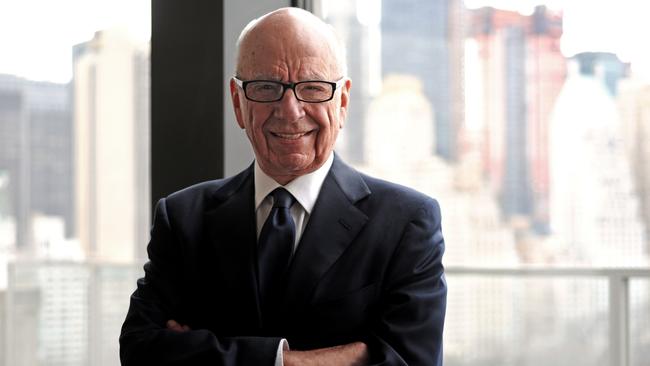
Rupert Murdoch is stepping down from News Corp and Fox Corporation at a time of upheaval for the entire media industry. But the transition to Lachlan Murdoch as sole chairman at both companies has been under way for several years.
The 52-year-old Lachlan represents a generational shift for the media empire, which spans digital, television and print properties in Australia, the US, across Asia and Britain – and in more recent years has expanded into fast-growing real estate platforms.
However, for investors there will be little change in strategy, with Lachlan Murdoch already closely involved in oversight of both companies for almost a decade.
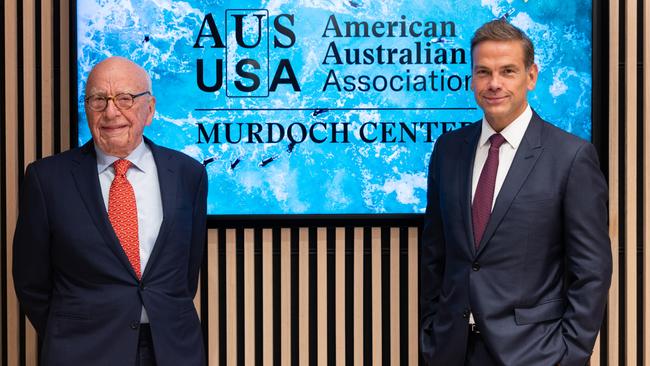
Rupert Murdoch has signalled plans to step down as executive chair of News Corp and chairman of broadcast group Fox Corporation in coming months.
The move marks the end of a seven-decade career that dramatically reshaped the media landscape around the world.
Murdoch, the founder of News Corp, will continue providing advice to both companies in the capacity of chairman emeritus.
Lachlan has been working alongside his father for almost a decade in the oversight of both News Corp and Fox Corporation.
He was named co-chairman of News Corp in 2014, and at the same time was appointed co-executive chairman of the separately listed 21st Century Fox, which has since been renamed Fox Corporation.
The transition at the top won’t impact the role of long-serving News Corp chief executive Robert Thomson or other key roles.
Lachlan Murdoch will continue as executive chairman and chief executive of Fox Corporation, owner of US broadcast network Fox and top-rating Fox News.
Those familiar with the situation say the changes should be seen as evolution at both companies, rather than revolution.
Digital push
Lachlan Murdoch, who is based in Sydney but divides his time among New York, Los Angeles and London, is likely to drive a deeper push into digital assets across both companies while focusing on the “core” of news and sport.
Last financial year, digital revenue made up more than half of News Corp’s total for the first time, a key moment for the global company that had been built up from a single newspaper in Adelaide.
News Corp owns mastheads including The Australian, the Herald Sun, The Daily Telegraph, The Courier-Mail and The Advertiser. It controls Foxtel and Fox Sports and has a majority stake in property listings group REA. More than two decades ago Lachlan championed News Corp’s $10m seed investment in REA, with the original bet now worth more than $10bn.
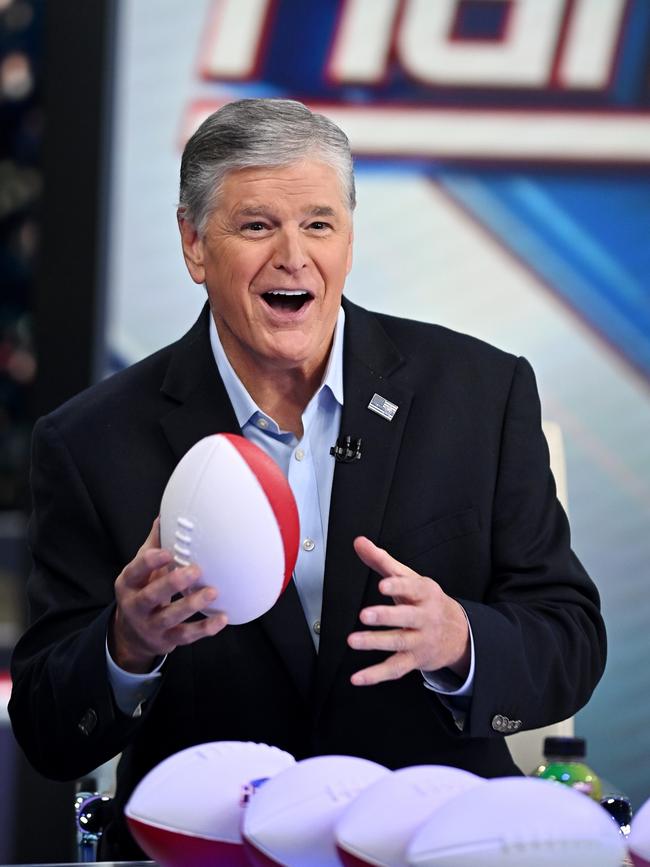
Around the world, News Corp owns titles including The Times of London, The Sun and The Wall Street Journal.
News Corp shares last month hit a record high as Robert Thomson highlighted the media company had just signed off on three of its strongest years ever. On Friday shares in News Corp jumped 2.2 per cent at $32.26, giving the company a valuation of a little over $US11bn ($17.1bn). Overnight on Thursday, New York-listed Fox Corporation rallied nearly 3 per cent, putting a $US15bn valuation on the broadcast company.
The boardroom shift comes as the broader media industry is undergoing profound change. The rise of streaming has seen savage losses as players including Disney, Netflix, Amazon and Apple battle it out for global viewers.
In recent years Rupert Murdoch sold the Fox movie studio behind the hits Avatar and Titanic as well as a vast film and television library to Disney for $US71bn. That deal, that closed in 2019, is now seen as the high-water mark as media players scrambled to secure content for the nascent streaming business, which is yet to deliver a profit for the global platforms, including Netflix and Disney. However, the sale of the studio split off Fox television broadcast network and Fox News into the business now called Fox Corporation.
Fox has still dabbled in streaming but under a different model with the free streaming service Tubi, which relies on advertising rather than subscription fees.
In Australia, News Corp’s Foxtel has plans to disrupt the streaming market by taking control through a landmark aggregation platform. Dubbed internally as “Project Magneto”, the platform is currently being previewed to advertisers. Foxtel operates Binge and Kayo sports streaming in Australia.
‘Streaming jungle’
Speaking at an investment conference in May, Lachlan Murdoch said Fox had chosen to operate in a part of the global media space that was significantly different from where others were playing.
While others were losing out in the wilds of the streaming jungle, “we like to think we’re on the beachfront, we’re where audiences are moving; we’re where advertisers value the most, where our distributors value the most and we can see continued growth,” Lachlan Murdoch told the MoffettNathanson analyst conference. He said it was important to continue to keep refining any strategy, particularly given the pace of technology and media.
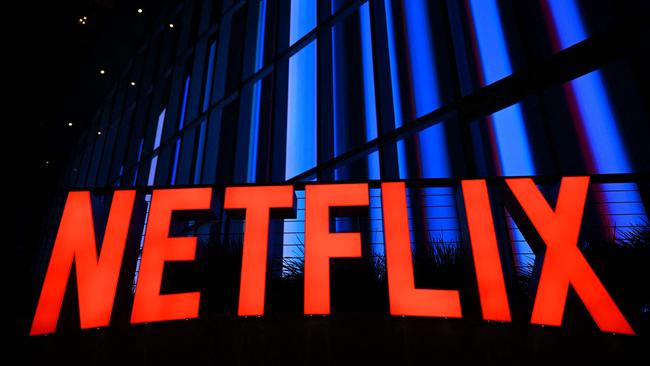
“Strategy – it always moves. If you fix a strategy and you don’t adjust … the ecosystem is changing rapidly and so you have to be flexible in terms of how you compete within that,” the Fox Corporation executive chairman said.
While Rupert Murdoch led the charge at News Corp over the past decade to force technology giants Google and Facebook to pay for the content produced by media companies, the rise of generative AI represents a new challenge for the industry, given it heavily draws on published information.
Robert Thomson last month told investors that talks were now under way with major technology players to strike a fairer deal around the use of intellectual property in AI.
He said technology threatened to hurt media on several fronts. Content was being harvested and scraped to train AI engines; individual news stories were surfacing in specific AI searches; and original content across a number of sources was often synthesised and presented by AI models as distinct content.
“It is crucial for our society that recomposition does not lead to decomposition of creativity and integrity,” Thomson said.
“Once again News Corp hopes to set precedents that benefit creators, publishers and journalists around the globe.”
Contest of ideas
Earlier this year News Corp considered reuniting with Fox to streamline the two media businesses and drive greater scale from a larger entity.
However, the plan was later shelved after meeting resistance from News Corp shareholders, who had preferred to keep the businesses separate amid uncertainty around the outcome of a US legal action against Fox by voting machine company Smartmatic.
Earlier this year Fox agreed to settle a separate lawsuit from Dominion for more than $US780m.
A merger between News Corp and Fox is likely to be examined over time, people familiar with the situation say, but this could be years away and only where it makes sense for both companies.
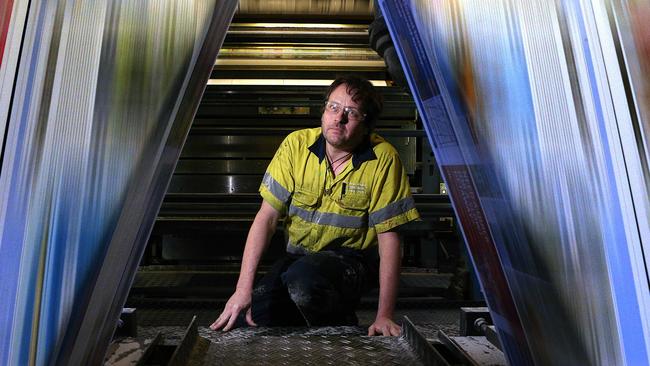
On Friday Lachlan Murdoch paid tribute to his father for a “remarkable 70-year career” that has spanned the world, adding that he would continue to provide valued counsel to both companies.
“We thank him for his vision, his pioneering spirit, his steadfast determination, and the enduring legacy he leaves to the companies he founded and countless people he has impacted,” Lachlan Murdoch said.
In a memo sent to staff, Rupert Murdoch said he planned to continue to be closely involved in the contest of ideas. The companies he oversaw “have every reason to be optimistic about the coming years”, he said.
“Our companies are in robust health, as am I. Our opportunities far exceed our commercial challenges,” he said.



